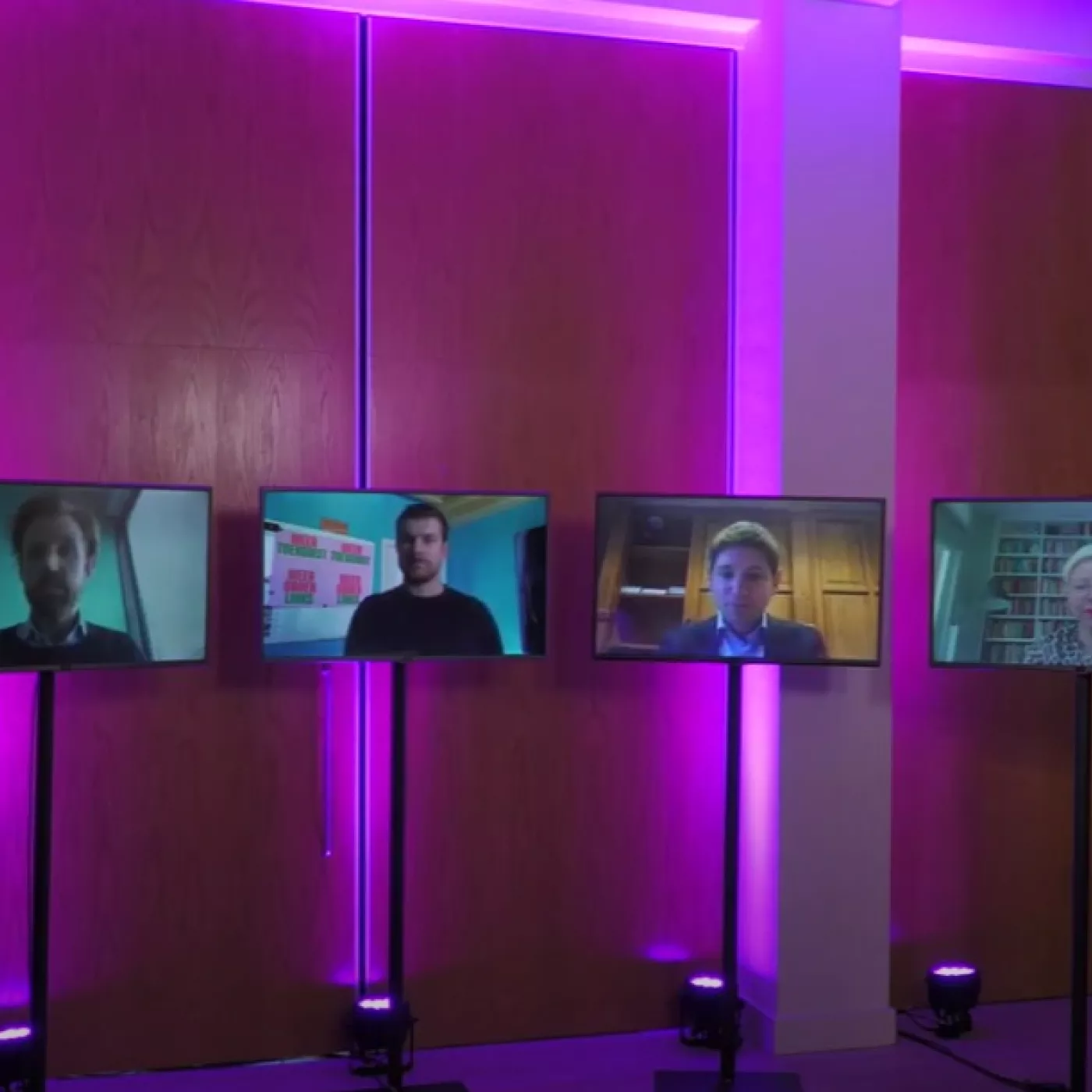‘Knowledge is crucial link between aid and trade’

On March 17th, voters in the Netherlands will decide which political parties will represent them in the Dutch parliament in the coming four years. A total of 37 parties are vying for a total of 150 seats.
Every election cycle, foreign policy and internationalisation are among the top issues discussed during debates between political candidates. On February 12, 2021, these themes were front and centre in an online debate organised by SAIL, an organisation representing Dutch education institutes involved in international collaboration. Discussion revolved around two main topics: the role of knowledge in aid & trade, and the importance of equality and inclusion in international collaboration.
Linking pin
In recent years, aid, trade and knowledge have become increasingly intertwined. Together they form the backbone of sustainable partnerships. International collaboration is served by the joined forces of education, science and economic and diplomatic networks. Although they differ on the details, debate participants generally support more policy coherence and a shared knowledge agenda, with the Dutch knowledge sector as the linking pin.
Five parties participated in the debate: the liberal-conservative VVD (People’s Party for Freedom and Democracy), the progressive GroenLinks (GreenLeft), the centre-right CDA (Christian-Democratic Appeal), the liberal-democrat D66 (Democrats ‘66), and centre-left PvdA (Labour Party).
Level playing field
The representatives of these parties agreed on the thesis posed by journalist and debate host Marcia Luyten that knowledge collaboration is essential for aid and trade. PvdA and CDA contended knowledge should be distributed more equally and that currently there is no level playing field.
The politicians agreed that knowledge collaboration is essential for aid and trade
Knowledge is the way to help countries forward, according to VVD. GroenLinks added that knowledge exchange is about more than Dutch students going abroad, and should also include embracing alumni networks, consisting of people who studied in the Netherlands. They regularly obtain positions of influence in their home countries and carry with them a positive attitude toward The Netherlands and the Dutch way of doing business. This cultural understanding is ‘essential for trade’, the party thinks.
The CDA representative then shared his experiences of meeting Holland Alumni during working visits. It convinced him of alumni’s value for both their home countries as well as for The Netherlands.
Local interests
The politicians also shared their thoughts on whether a too heavy focus on multilateral collaboration can cloud local interests. PvdA en GroenLinks are of the opinion that a significant part of the aid budget should be distributed through local organisation like NGOs. They believe this will ensure that local needs will not be compromised and that vulnerable groups can be better reached.
GroenLinks specifically offered its support for ‘valuable bilateral programmes like the Orange Knowledge Programme, that revolve around durable partnerships between Dutch knowledge institutions and educational institutions in developing countries.’
Other participants pointed out that smaller countries like the Netherlands benefit from a multilateral approach. European countries should not go it alone, D66 said.
'Educational collaboration is not only important for economic development, but also for peace building and human rights’
Sharing values
During the introduction to the topic of equality and inclusion, Thea Hilhorst, Professor Humanitarian Aid at the International Institute of Social Studies (Erasmus Universiteit Rotterdam), called educational collaboration ‘not only important for economic development, but also for sharing values like peace building and human rights’.
Several times during the debate participants came back to the balance between Dutch and local interests. CDA pointed out that although focusing on local interests may sound noble, in practice there can be a discrepancy between the interests of a regime and the people. PvdA however was convinced that local interests have been neglected for too long. Still, the party argues, local interests and laws should never be placed above universal human rights.
VVD stated that local and Dutch interests are not at all mutually exclusive, and the party underlined the importance of reciprocity.
Stay engaged
GroenLinks supported local ownership as long as it is in line with the United Nation’s Sustainable Development Goals (SDGs). Norms and values may differ from region to region, but human rights and SDGs are universal.
None of the participants were in favour of withdrawing aid when countries trample on human rights. Engagement is the way to go. Especially when democracy is in peril, collaboration is key, the politicians said.
Watch the debate (in Dutch) here.